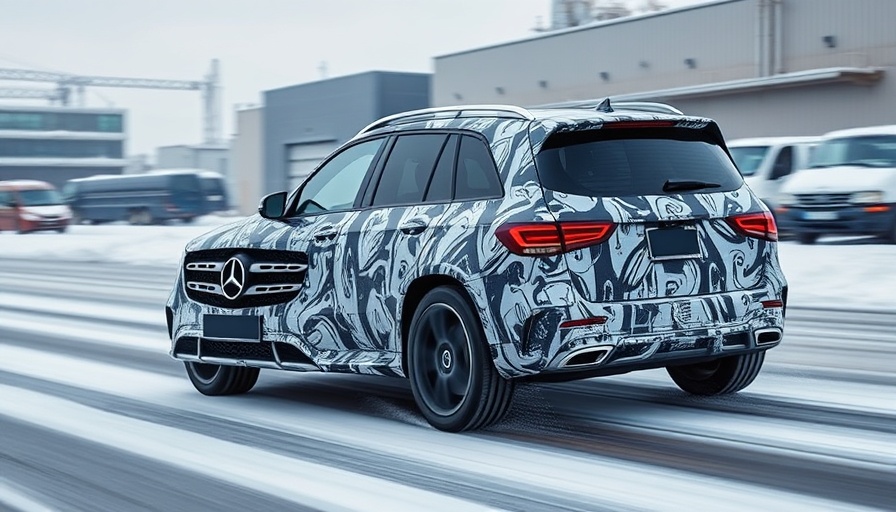
The Next Generation of Hybrid Power in the Mercedes-Benz GLB
In an era where sustainability meets luxury, the next-gen Mercedes-Benz GLB hybrid has been spotted during testing, promising an innovative blend of performance and eco-friendliness. As the automotive industry shifts towards electrification, this new hybrid model appears poised to make significant strides in energy efficiency without sacrificing the luxury features that Mercedes-Benz is known for.
What We Know About the Upcoming GLB Hybrid
Recent spy shots have revealed that the next-generation GLB hybrid will incorporate advanced hybrid technology aimed at reducing emissions while delivering a robust driving experience. This car is expected to combine a traditional combustion engine with electric power, allowing for a smoother transition and more dynamic performance. Prominent features may include regenerative braking systems and an intelligent energy management system, placing the GLB hybrid as a contender for environmentally conscious consumers.
Benefits of Choosing Hybrid Vehicles
One of the most appealing aspects of hybrid vehicles, such as the GLB hybrid, is their fuel economy. According to various studies, hybrid cars typically offer better mileage than their gasoline counterparts. For families looking to save on fuel costs while enjoying spacious interiors and cutting-edge technology, the GLB could be an ideal choice. Additionally, the hybrid option provides lower emissions, appealing to those concerned about their carbon footprint.
The Mercedes-Benz Commitment to Sustainability
Mercedes-Benz has long been a frontrunner in the automotive industry, and its commitment to sustainable practices is evident in its evolving lineup. The introduction of the GLB hybrid aligns perfectly with the manufacturer's vision for a greener future. As part of the broader transition towards electric mobility, the brand aims to produce a lineup that includes more than just hybrids—fully electric models are also on the horizon.
Future Predictions for the Automotive Market
The car market is expected to continue trending towards electrification over the next decade. Industry analysts predict that by 2030, nearly half of all new cars sold will be hybrids or fully electric models. With stringent emissions regulations and a growing consumer preference for greener options, vehicles like the GLB hybrid are well-positioned for success. This shift not only represents consumer demand but also showcases manufacturers’ adaptability in the face of environmental challenges.
Why This Matters for Potential Buyers
As potential buyers and automotive enthusiasts, recognizing the evolution of hybrid vehicles can greatly influence purchase decisions. The GLB hybrid is not just another car; it symbolizes the future of sustainable luxury, offering innovative technology wrapped in the signature Mercedes-Benz elegance. Understanding the implications of choosing a hybrid can help buyers make informed decisions that align with their values and lifestyle.
Take the Next Step Towards a Greener Future
As we await the official unveiling of the next-generation Mercedes-Benz GLB hybrid, it’s an excellent time for consumers to explore hybrid options that align with both their goals for sustainability and their needs for performance and luxury. Seek out informative resources, test drive available models, and consider how integrating hybrid vehicles into your lifestyle can pave the way for a more sustainable future.
 Add Row
Add Row  Add
Add 




Write A Comment